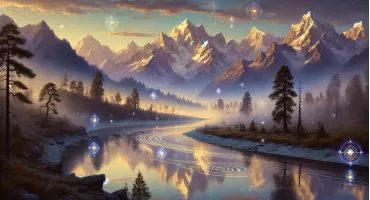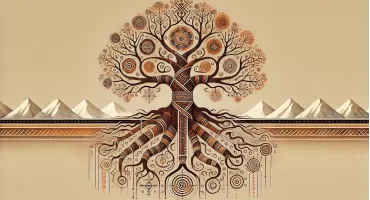To live in a naturally beautiful place that is being destroyed by the selfish designs of human beings is a great dilemma when you are a part of the very society that has led to the outcome. To understand yet to be helpless about this is paralyzing until you realize that the effort you bring about to change may add more to complexity rather than solving it. The answer is also not in ignoring it.
How do we find a perfect balance to solving a problem without creating a new one? Or should ideas be executed despite the consequences of the perpetual motion of creation and destruction? One good begets another good and the same cycle applies to the bad. The endless battle of good versus evil has been taught throughout the history of mankind and we still haven’t learned much from it, have we? Have we been selective in our lessons? That the reward of the good being long, testing, and uncertain but that of the evil being instant with a possibility of absolution? Are we conditioned to be good so evil can rule without much competition?
Nature is being vandalized for the comforts of men of the wealthier kind and yet the seasonal punishment due to natural calamities and weather is hell-bent to make the sufferings of the poor the worst. The elites seem to guide the poor for their own credentials rather than the betterment of the deprived, generally speaking. Oh yes, sure, good works are being done and the awards are being handed out. The audience and the poor clap together. Yet another achievement!

Then there is the corrupt man, whose conscience is ruthless. No age will change the nature of a corrupt man. No boundary is impregnable to satiate his hunger for power.
Ironically, the modern world mocks the primitive man who exists in his bare simplicity and cannot comprehend the progress of artificial intelligence in the nuclear era. This primitive man manures the earth, fodders his cattle, pacifies his ancestors and gods, invokes all the divinities, and offers his harvest while placing his unwavering faith in nature, to whom he obliges his existence.
The contemporary world ignores the nomads who choose to shift rather than build a formidable dwelling system against the natural order of all things seasonal. Not for lack of ingenuity, but for a great deal of reverence for nature. A tradition that had successfully secured many a thousand years of sustainability. All to be undermined by less than half a century of rabid patronization of earth-abusing machines and farming technologies to cater to the demands of the growing billions.
Let us reminisce, lest we forget the years when the numbers didn’t seem so imposing, the walk not so tedious, the foods that only came from the skies and earth, the comforts that didn’t know the demands; the hard work of the father, the love of the mother and the abundance of faith.





Leave a Reply